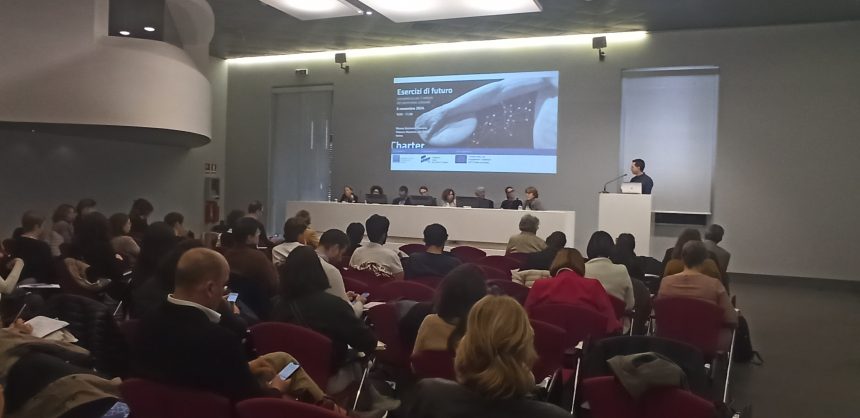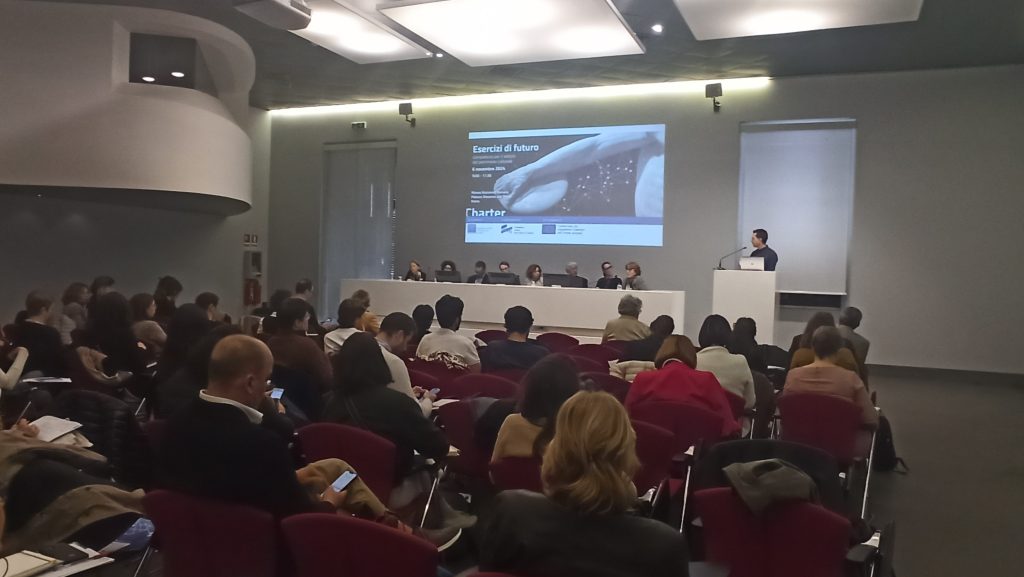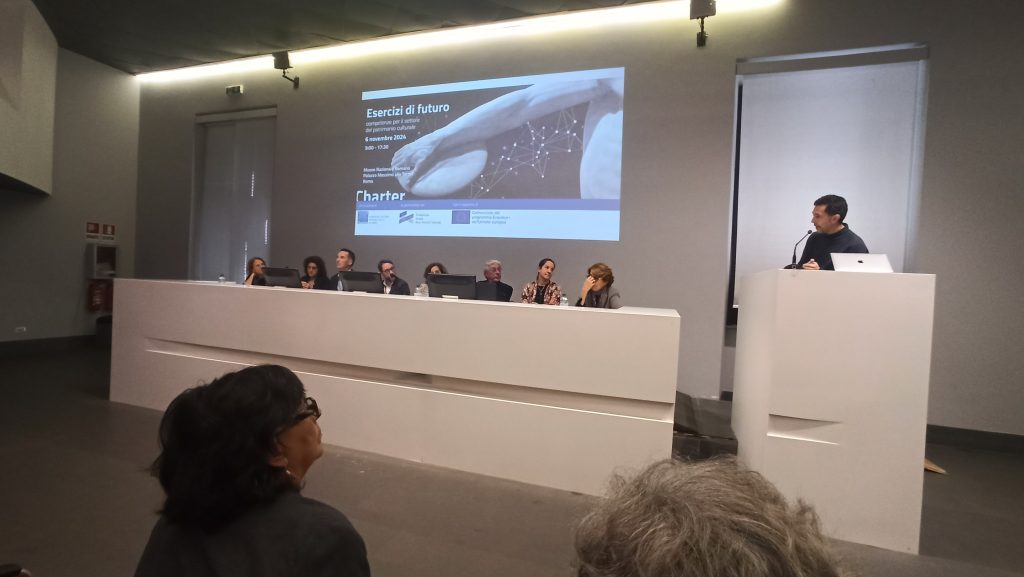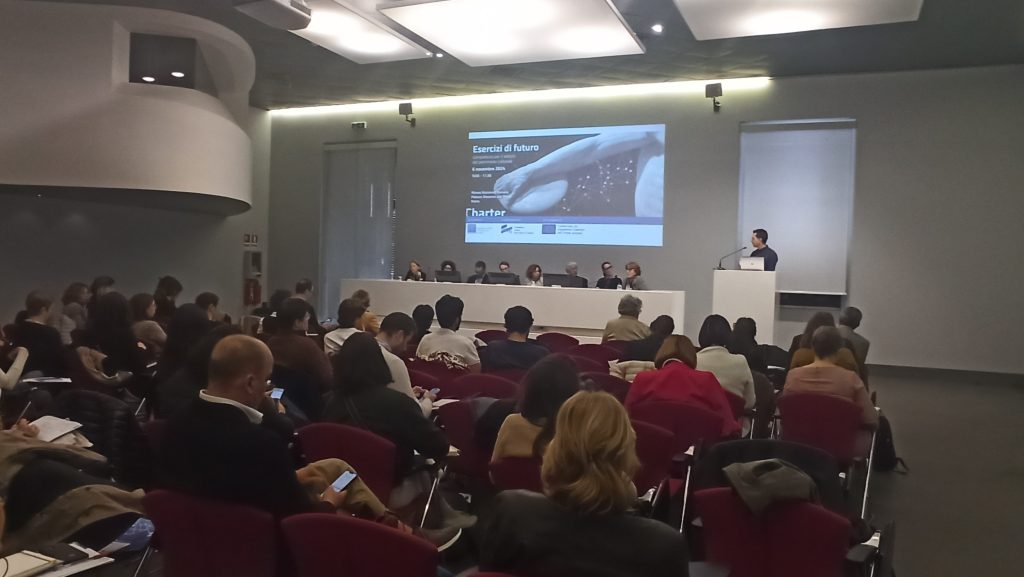
“Exercises of the future: skills for the cultural heritage sector”-Charter Day Rome
On November 6th, the Italian Charter Days took place in Rome, held in 10 different European countries as part of the European Charter Project.
The Italian day held in Rome, entitled “Exercises of the future: skills for the cultural heritage sector”, included moments of storytelling, discussion and collection of ideas aimed at future developments.
The participation of the Foundation for Research and Innovation was as a stakeholder but also as a FRI speaker, in the round table entitled “The Italian contribution to the CHARTER project: the voice of the partners”, aimed at bringing a contribution to the day’s activities representing the Tuscan territory. The session was dedicated to describing the work carried out by the partners on the project, the main results, and how the outcomes and results will be put to good use in the future and can be implemented thanks to the support of the various project partners. The working tables that followed the round table and that took place in the afternoon instead had the objective of allowing the public present to discuss in order to try to gather ideas and network, through a guided dialogue that would lead to the creation of a draft manifesto of the Italian network of the Charter project.
The Italian Charter alliance during the day touched on various topics and the direction in which it was projected was that of a rethinking of training, both for those who have to enter the world of work from scratch (skilling), and for those who are already there and need updates (upskilling, reskilling), operating mainly on transversal themes such as sustainability, digitalization, innovation at the service of cultural heritage. A focus was also the identification of professional figures for the future of cultural heritage, trying to put the market logics, which can sometimes represent trends, but of short duration, into the right perspective. Finally, a nod, not of little importance, was made to the hope of being able to bring greater coordination of all the stakeholders involved to the various local realities, generating control rooms that can activate the main actors involved in each phase of the process in order to have well-defined processes. In short, the theme of cultural heritage ecosystems was addressed and how to activate the various components in the most effective times and ways.



